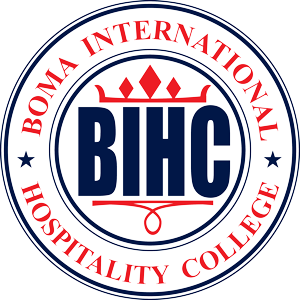About BILT: Our approach | Themes | Who we are
Get involved: News and events | BILT community | Expert group | Self-Reflection Tool
Knowledge base: Innovative and promising practices | Atlas of emerging trends | BILT library | TVETipedia

Since March 2023, an Expert Group commissioned by the Bridging Innovation and Learning in TVET (BILT) project has been investigating the impact of the dual green and digital transition on the hospitality and tourism sector. The group is composed of 28 members representing national bodies, international and regional organizations, TVET providers, and NGOs from Africa, Asia and the Pacific, and Europe.
The global BILT Learning Forum, which took place in Bonn from 24 to 26 October 2023, was an opportunity for the Expert Group to present a summary of its key outcomes.
Hospitality and tourism is a dynamic industry, which experiences various changes due to an increasing focus on energy efficiency and renewable energy sources. Global green industry trends in the sector include the reduction of food waste and single-use plastics, as well as growing attention to sustainability certification for businesses. This demand is being driven by consumers, who expect the sector to increase sustainable practices and reduce its carbon footprint.
Closely monitoring industry trends is crucial for TVET to identify the new in-demand skills in a timely manner. The BILT Expert Group identified the establishment of Tourism and Hospitality Research Centres as an example of good practice, such as the ‘Islandic Tourism and Research Centre’ in Iceland, or the ‘Hospitality Research Centre of the Hague School’ in the Kingdom of the Netherlands.
Simultaneously, in the digital transition, service providers increasingly engage in the platform economy, use of big data and automation. Automation can help in addressing skills shortages and facilitating business processes. Another trend is the development of various virtual and augmented reality solutions, apps and gadgets that enhance customer experience.
TVET providers can effectively support learners to develop relevant competencies by exposing them to industry trends, tools and solutions. This exposure can be effectively achieved through dual training, but also in the classroom. One example of good practice identified by the Expert Group is the use of the CiMSO property management software free of charge by educational institutions in Namibia.
Watch the visual summary of trends around new skills in the hospitality and tourism sector presented at the BILT Learning Forum:
As a next step, the forthcoming publication by the BILT Expert Group will discuss the interplay of green and digital trends and provide further practical recommendations targeting TVET stakeholders at macro-, meso- and micro-level to deliver future-oriented skills for the hospitality and tourism sector. Scheduled for release in early 2024, the publication will showcase successful practices and innovations from the three focus regions of the project.
Stay informed: sign up for our updates
with support of EHT, Cambodia, and BIHC, Kenya, as Co-Leads
 |  |
The BILT project is implemented by
with support of
and sponsored by